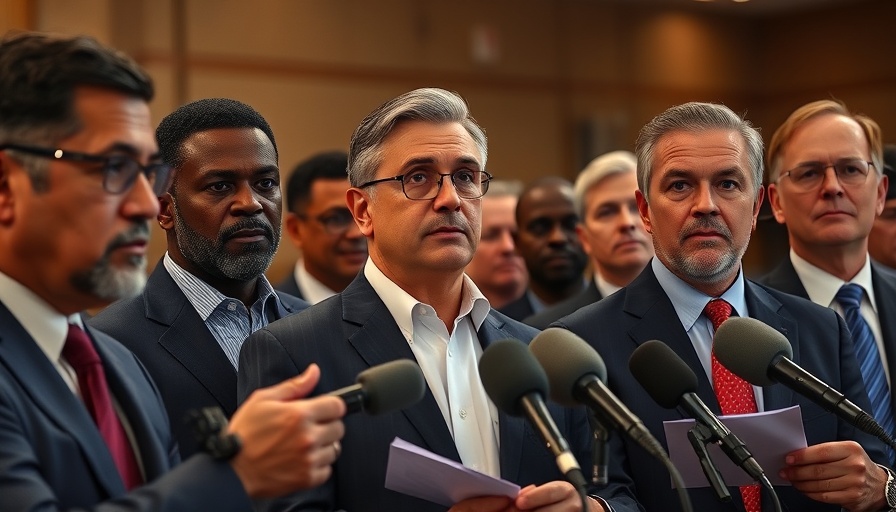
Unraveling the Coalition: Insights and Implications Ahead of the 2027 Elections
The recent coalition formed by several opposition parties in Nigeria, including the Labor Party and the Social Democratic Party (SDP), has raised eyebrows amid ongoing challenges for the People's Democratic Party (PDP). The coalition's objective is clear: to challenge the All Progressive Congress (APC) and disrupt its long-standing grip on power. But what does this really mean for the PDP, Nigeria's oldest opposition party?
In 'Opposition Coalition Picks ADC: What’s Next for PDP Ahead of 2027 Election?', the discussion dives into Nigeria's political landscape, exploring key insights that sparked deeper analysis on our end.
A New Political Alignment?
This coalition comes at a crucial time, as many political actors express dissatisfaction with the current political machinery. According to Comrade Jude Imagu, a key member of the PDP, the urgency for coalition-building often arises closer to elections, reflecting a trend where political figures unite not for the electorate's sake but to safeguard their ambitions. With upcoming elections in 2027, the question lingers: Do these coalition dynamics signify a substantial political realignment or merely a reshuffling of power among the elite?
Challenges Facing the PDP
Internally, the PDP grapples with significant divisions and a series of electoral setbacks that have culminated in a weakened position in the political landscape. The coalition's emergence has sparked discussions about whether the PDP can effectively contend against the APC, considering its own issues of leadership and party unity.
Leadership Credibility and Ideological Issues
According to Imagu, while the coalition may display a united front, it is the ideological consistency and leadership capabilities that will ultimately dictate its success or failure. The point is made clear that many of the coalition members, including former high-profile politicians, carry a history fraught with failed leadership. As apprehensions mount about whether they can truly represent the citizens’ interests, a vital question arises: Is this coalition fashioned from genuine concern for the public, or is it simply a rehash of past political missteps?
The Rise of a Third Force?
Nigeria's citizens are increasingly yearning for political representation that genuinely reflects their needs. The discussion now shifts to whether a credible third force could emerge from this political climate. Imagu emphasizes that the ideal coalition would be one founded on the people-centric motives rather than desperation-based strategies. Such a movement could redefine Nigeria's political fabric, ensuring that the worries and concerns of the populace are not only acknowledged but prioritized.
Reflection on Past Experiences
The disillusionment with traditional political structures is evident. Many citizens reflect on the APC’s governance since 2015, which they perceive as having perpetuated cycles of hardship and corruption. Individuals like Imagu argue passionately for a restoration of genuine leadership directed toward the people, moving beyond the power struggles of established elites.
A Path Forward?
The discourse around this coalition continues as analysts and citizens question the effectiveness of these new alliances in addressing Nigeria's urgent issues such as corruption, insecurity, and economic instability. As they strategize for the upcoming elections, it is critical for these political entities to not only secure votes but also to establish trust among the electorate by demonstrating their capability to enact real change.
In conclusion, as Nigeria gears up for the 2027 elections, the evolving political scene warrants careful observation. The dynamics between the emerging coalition and the PDP highlight a moment of potential reawakening in the country's politics, one that demands accountability and introspection from all political actors.
 Add Row
Add Row  Add
Add 


 Add Row
Add Row  Add
Add 

Write A Comment